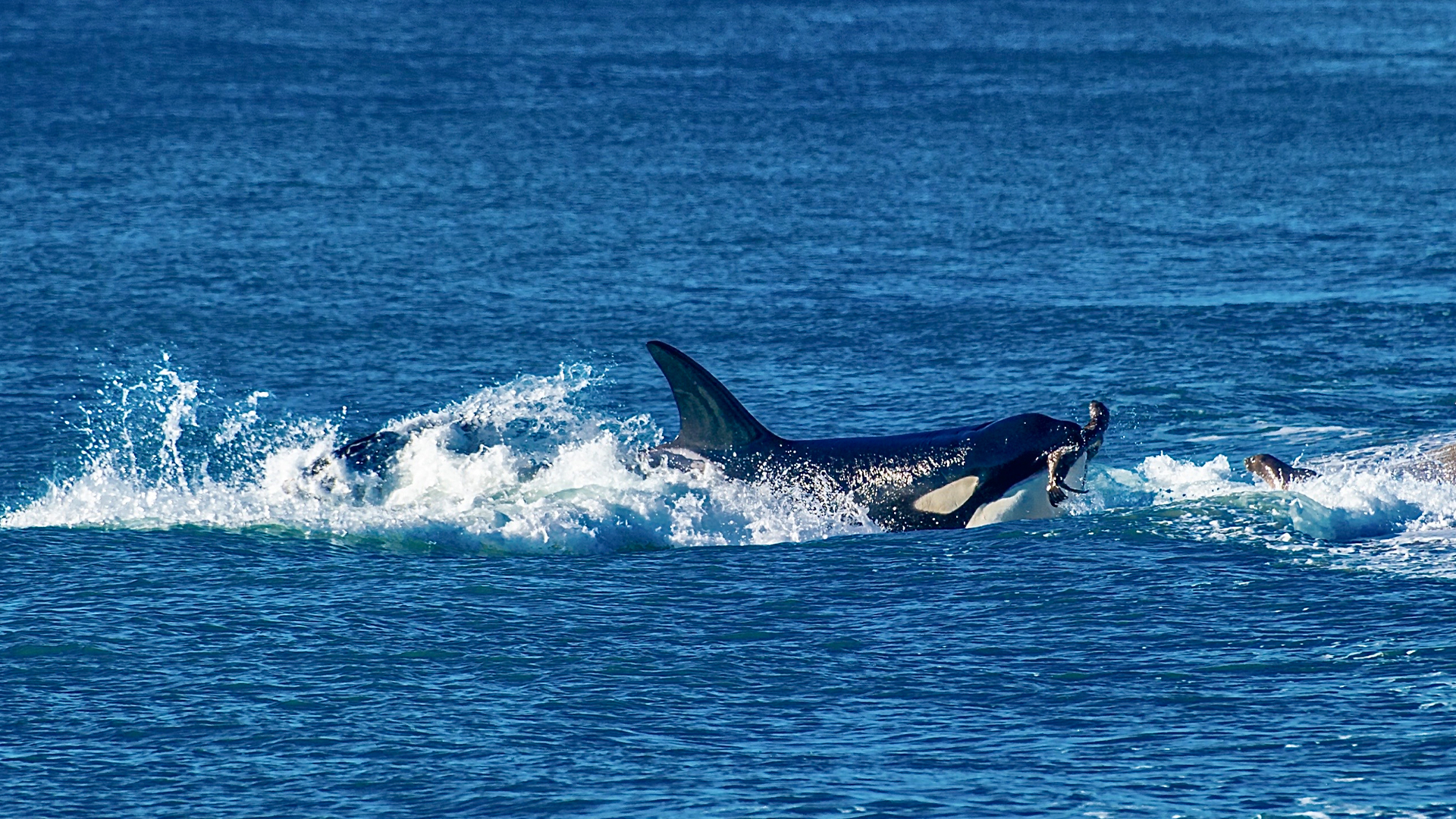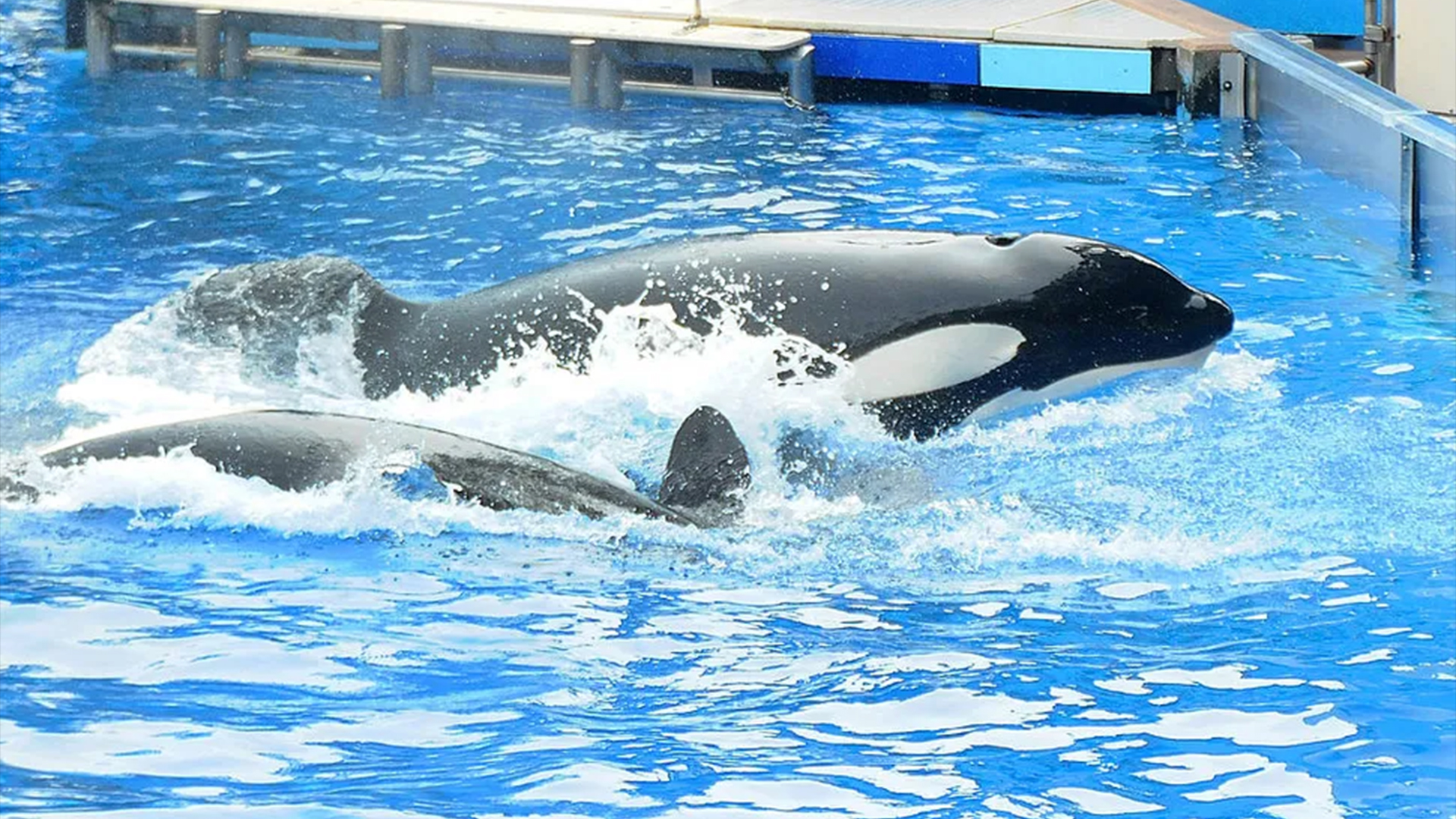How often do orcas attack humans?
Killer whales are surprisingly gentle in the wild when interacting with humans — though it's sometimes a different story with orcas in captivity.

Get the world’s most fascinating discoveries delivered straight to your inbox.
You are now subscribed
Your newsletter sign-up was successful
Want to add more newsletters?

Delivered Daily
Daily Newsletter
Sign up for the latest discoveries, groundbreaking research and fascinating breakthroughs that impact you and the wider world direct to your inbox.

Once a week
Life's Little Mysteries
Feed your curiosity with an exclusive mystery every week, solved with science and delivered direct to your inbox before it's seen anywhere else.

Once a week
How It Works
Sign up to our free science & technology newsletter for your weekly fix of fascinating articles, quick quizzes, amazing images, and more

Delivered daily
Space.com Newsletter
Breaking space news, the latest updates on rocket launches, skywatching events and more!

Once a month
Watch This Space
Sign up to our monthly entertainment newsletter to keep up with all our coverage of the latest sci-fi and space movies, tv shows, games and books.

Once a week
Night Sky This Week
Discover this week's must-see night sky events, moon phases, and stunning astrophotos. Sign up for our skywatching newsletter and explore the universe with us!
Join the club
Get full access to premium articles, exclusive features and a growing list of member rewards.
Captain Robert Falcon Scott witnessed an extraordinary scene during his ill-fated Antarctic expedition when, on Jan. 5, 1911, his photographer Herbert Ponting ran to the edge of an ice floe to photograph a group of orcas that had taken an interest in the expedition dogs tied up on the ice.
"The next moment the whole floe under him and the dogs heaved up and split into fragments," Scott wrote in his diary. "One could hear the 'booming' noise as the whales rose under the ice and struck it with their backs."
Ponting and the dogs escaped the ice unharmed, but the encounter helped cement orcas' (Orcinus orca) terrifying reputation. More than 100 years later, that reputation continues to grow as the species sinks boats off Europe's Iberian coast and targets vessels as far away as Scotland. But how often do orcas actually attack humans?
Turns out, while orcas may deserve their fearsome reputation when it comes to other marine animals, they almost never attack humans in the wild — although they have attacked and killed humans multiple times in captivity. Furthermore, all of the reported violent interactions between orcas and humans come with significant caveats.
Related: Orcas are learning terrifying new behaviors. Are they getting smarter?
Erich Hoyt, a researcher at Whale and Dolphin Conservation and author of "Orca: The Whale Called Killer" (Firefly Books, 2019), spoke to Live Science about some of the reported orca attacks. His take on the Antarctic incident is that the orcas probably mistook Ponting and the dogs for strange seals.
"Killer whales have been shown to rock ice floes, wash the seals off the floes and break ice from beneath," Hoyt said in an email. "I think yes that was hunting behavior, but not hunting for humans."
Get the world’s most fascinating discoveries delivered straight to your inbox.
Orcas have been encountering humans in the ocean for centuries, and while there's a handful of accounts like Ponting's, there's only one report of the species killing a human. The fatal encounter reportedly happened in the 1950s, when some orcas became trapped in sea ice in the eastern Canadian Arctic.
Two Igloolik Inuit elders told researchers decades later that a young man ignored the advice of his elders and went to see the trapped killer whales. He was warned the ice was too thin, but he believed he could outrun the orcas. According to the elders, an orca broke through the thin ice and ate him.
It's a cautionary tale that the researchers couldn't verify when they reported it as part of a 2014 study in the journal Aquatic Mammals. Hoyt thinks that falling into icy water is a more likely cause of the man's death.
"I don’t think a killer whale would ever hunt a human," Hoyt said. "They are fussy eaters, really conservative in terms of whatever they learned from their mothers and from their pod about what constitutes food."
In other words, orcas don't eat what they aren't taught to eat, so they wouldn't eat a human. Wild orcas sometimes kill other animals for practice or even play, but humans have seemingly never been on the receiving end of this. There's one confirmed case of a killer whale biting a surfer off California in 1972, but the orca quickly let go, the Lodi News-Sentinel newspaper reported in 1996. Hoyt interviewed the surfer and noted he might well have looked like a seal to the orca at the time.
Captive killers
Over the past several decades, there have been dozens of violent encounters between humans and orcas held in captivity. Perhaps most famously, an orca named Tilikum was involved in the deaths of three people, including killing SeaWorld trainer Dawn Brancheau in 2010.
Scientists aren't sure exactly what triggers captive orcas to attack. However, Hoyt noted that captivity is an artificial environment and compared it to living in a tiny jail cell. "After a few years, even in the least oppressive institutions, orcas start to go a bit crazy," Hoyt said.
That doesn't necessarily mean captive orcas kill out of frustration. Hoyt said that the incidents involving Tilikum could have just been attempts at play in the face of extreme boredom.
"In fact, it is amazing how careful killer whales are in the underwater interactions that have been experienced in the wild or captivity," Hoyt said. "Because in most cases unless great care were taken, the orca could easily accidentally kill a human."

Patrick Pester is the trending news writer at Live Science. His work has appeared on other science websites, such as BBC Science Focus and Scientific American. Patrick retrained as a journalist after spending his early career working in zoos and wildlife conservation. He was awarded the Master's Excellence Scholarship to study at Cardiff University where he completed a master's degree in international journalism. He also has a second master's degree in biodiversity, evolution and conservation in action from Middlesex University London. When he isn't writing news, Patrick investigates the sale of human remains.
 Live Science Plus
Live Science Plus












